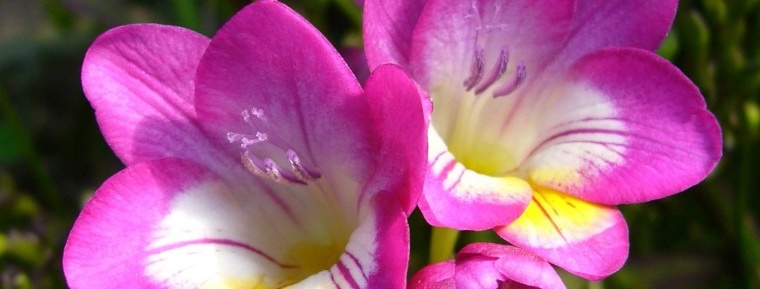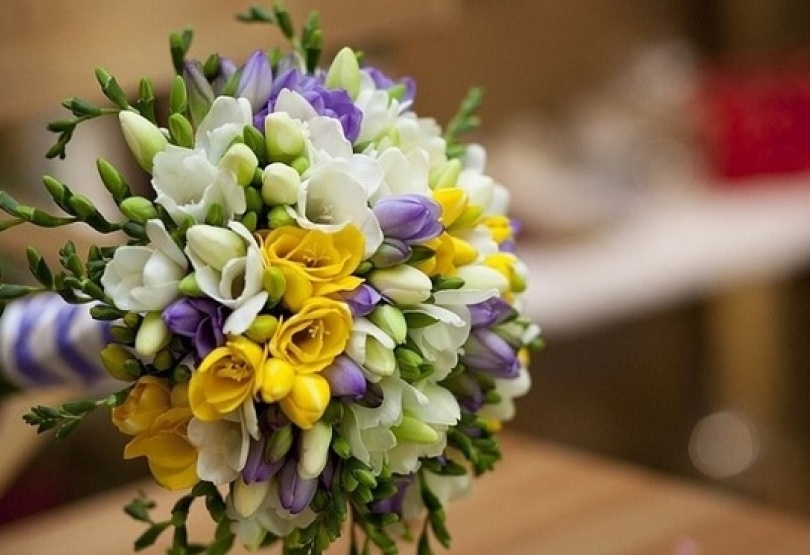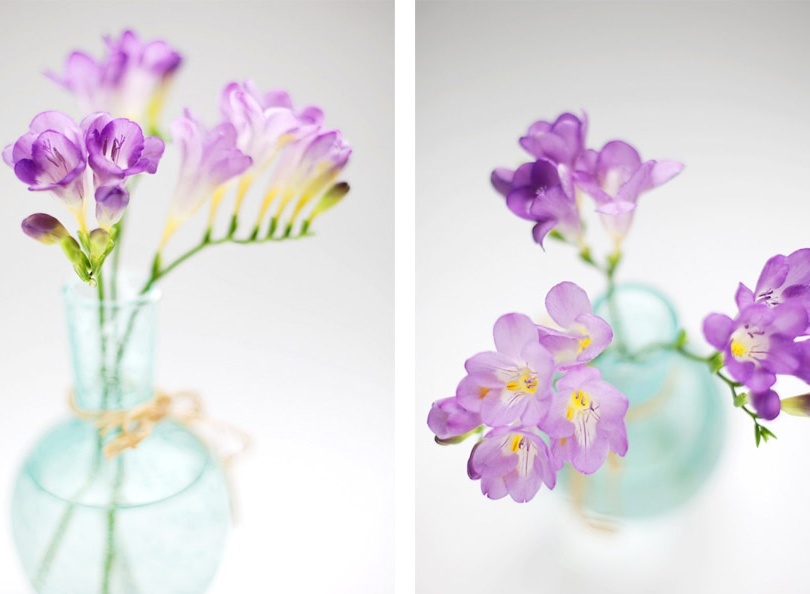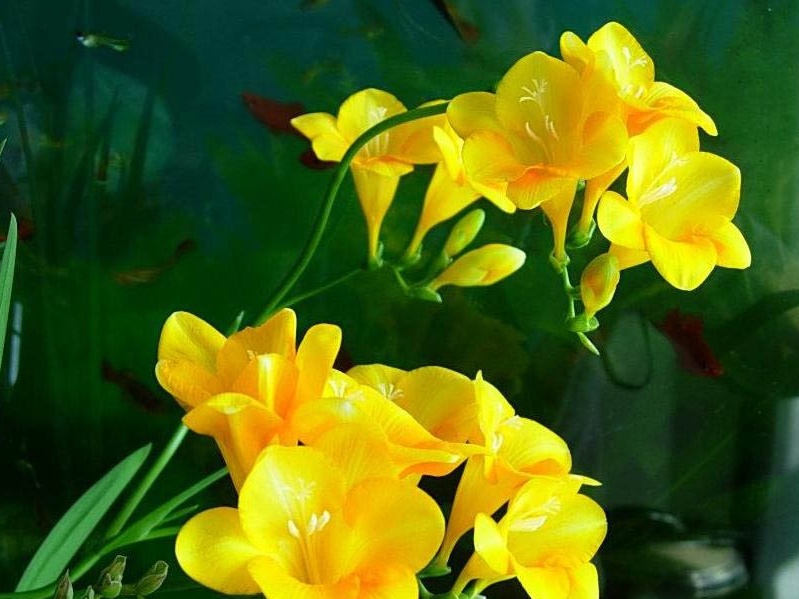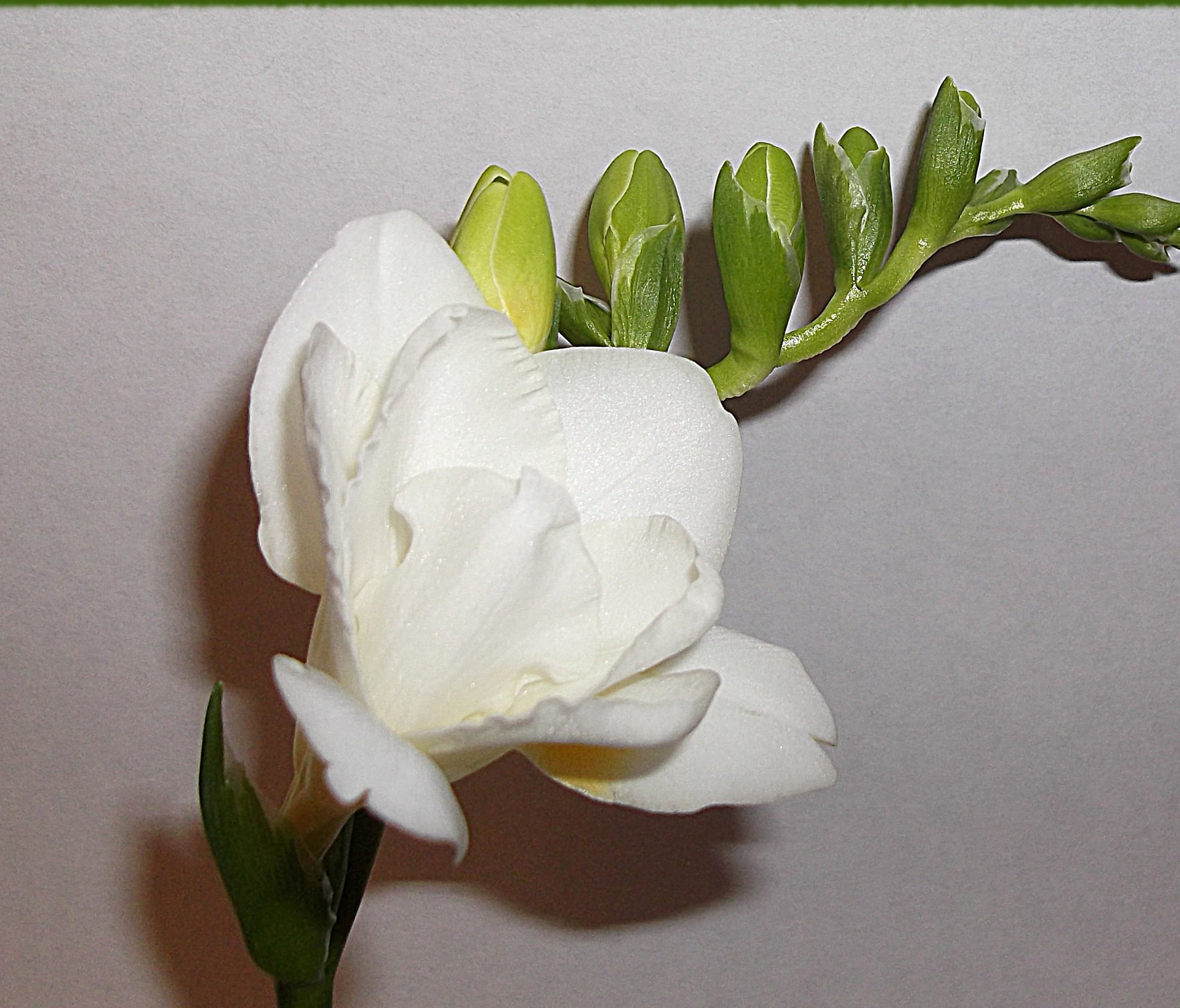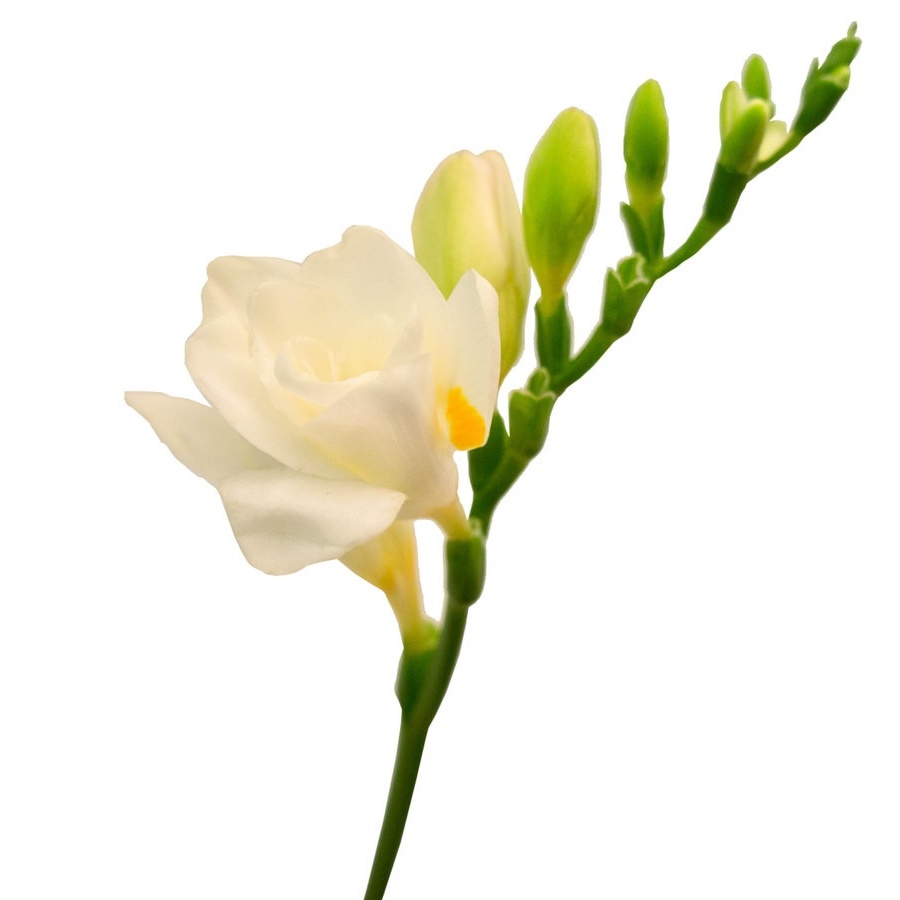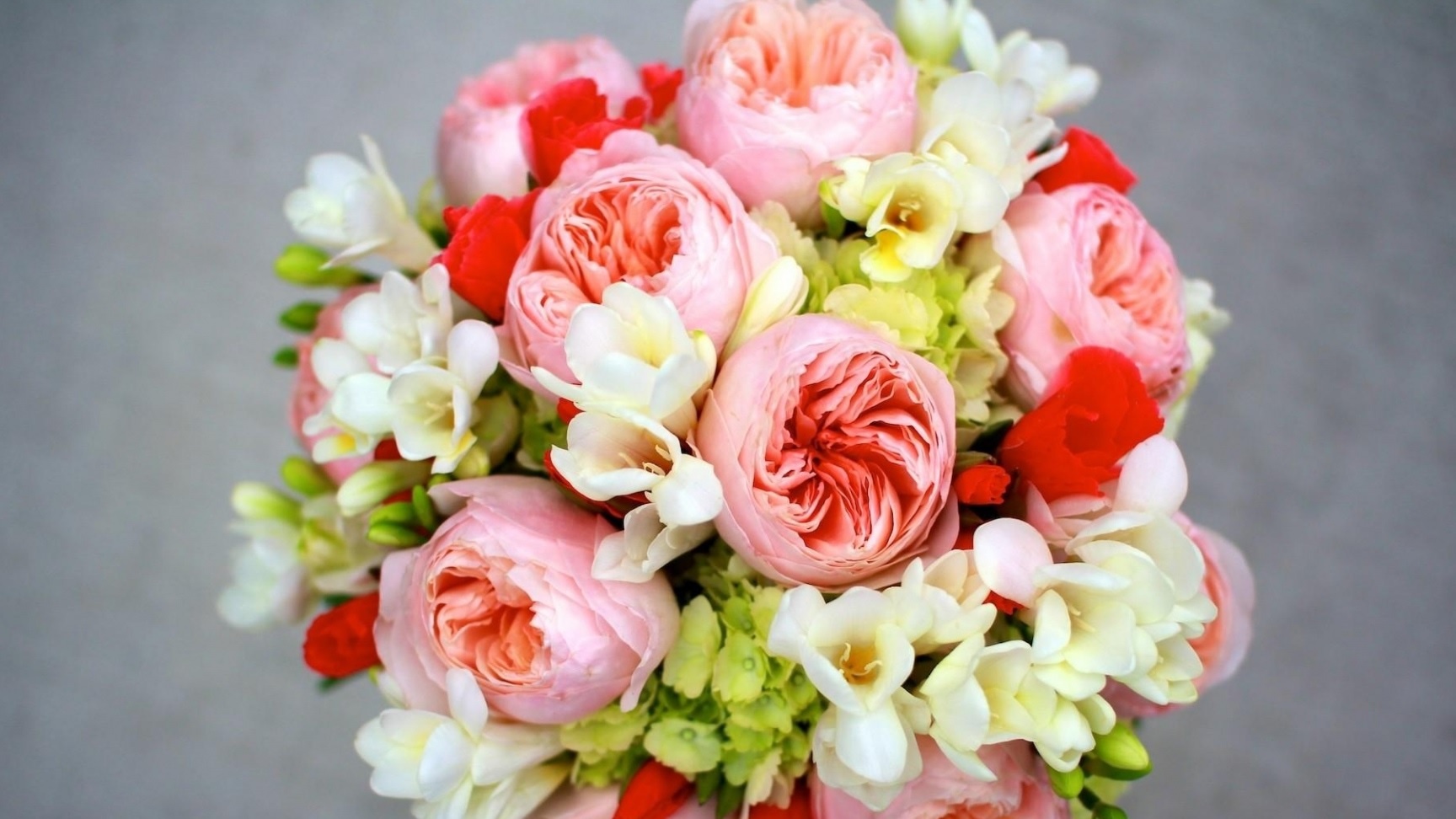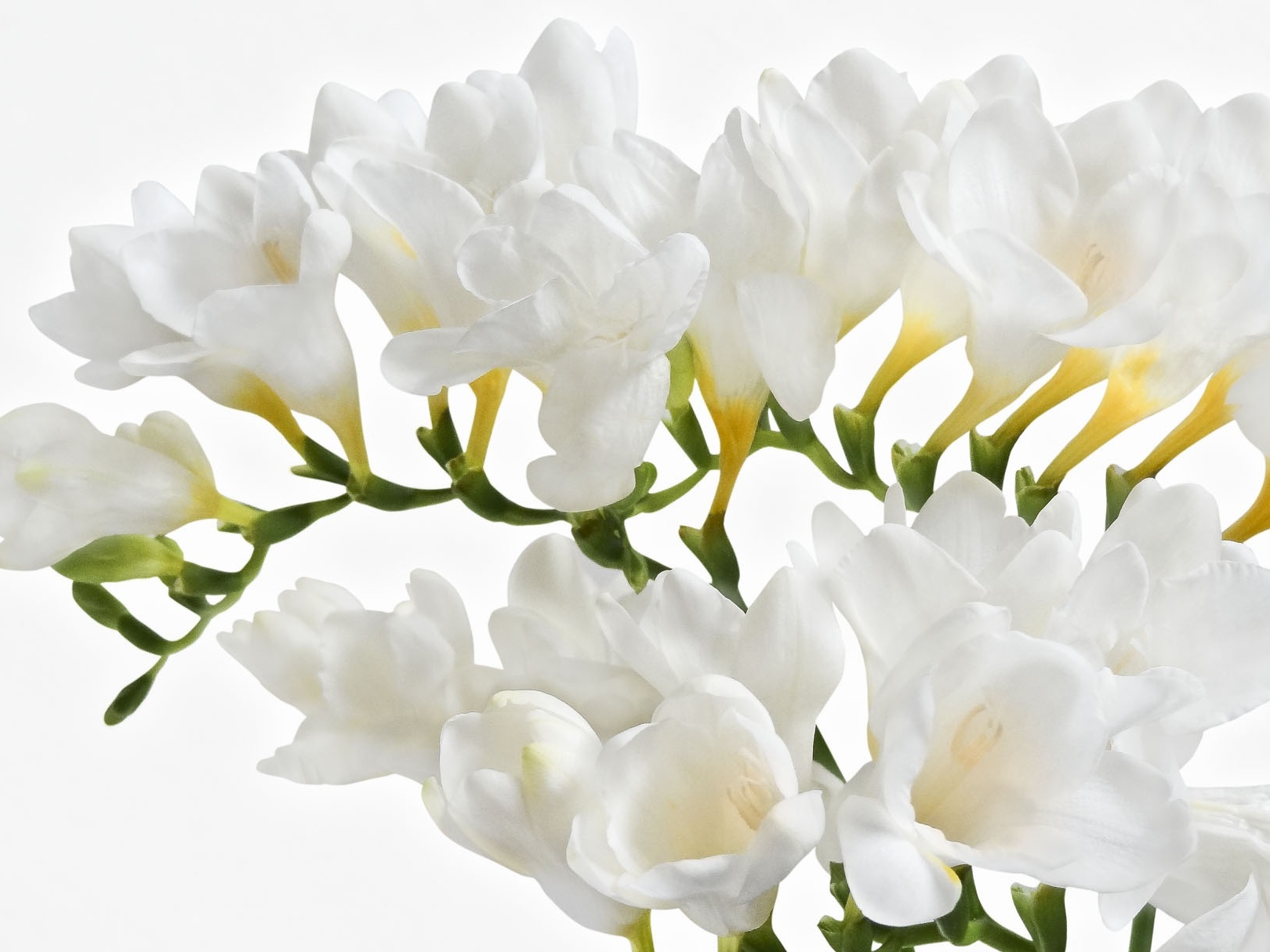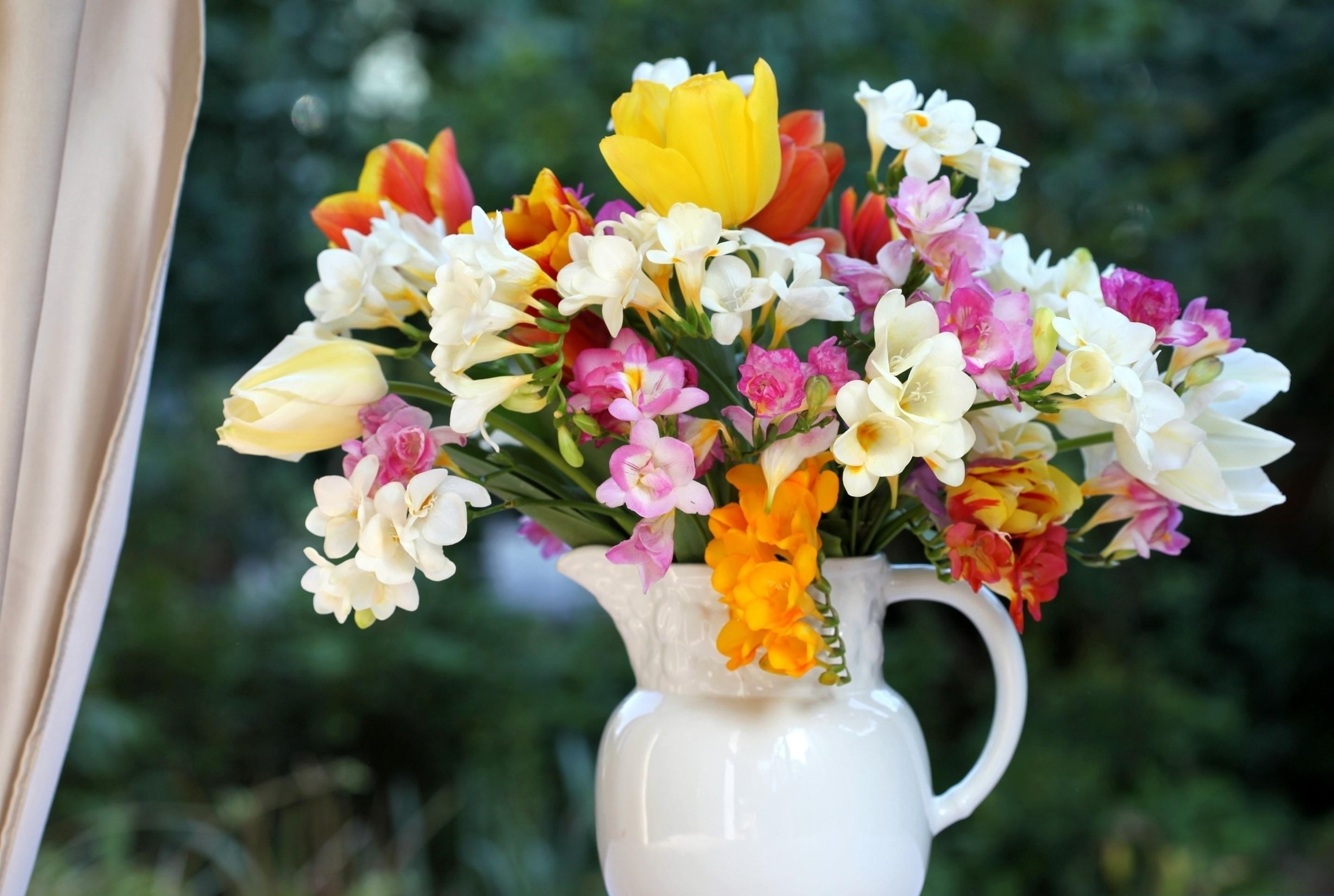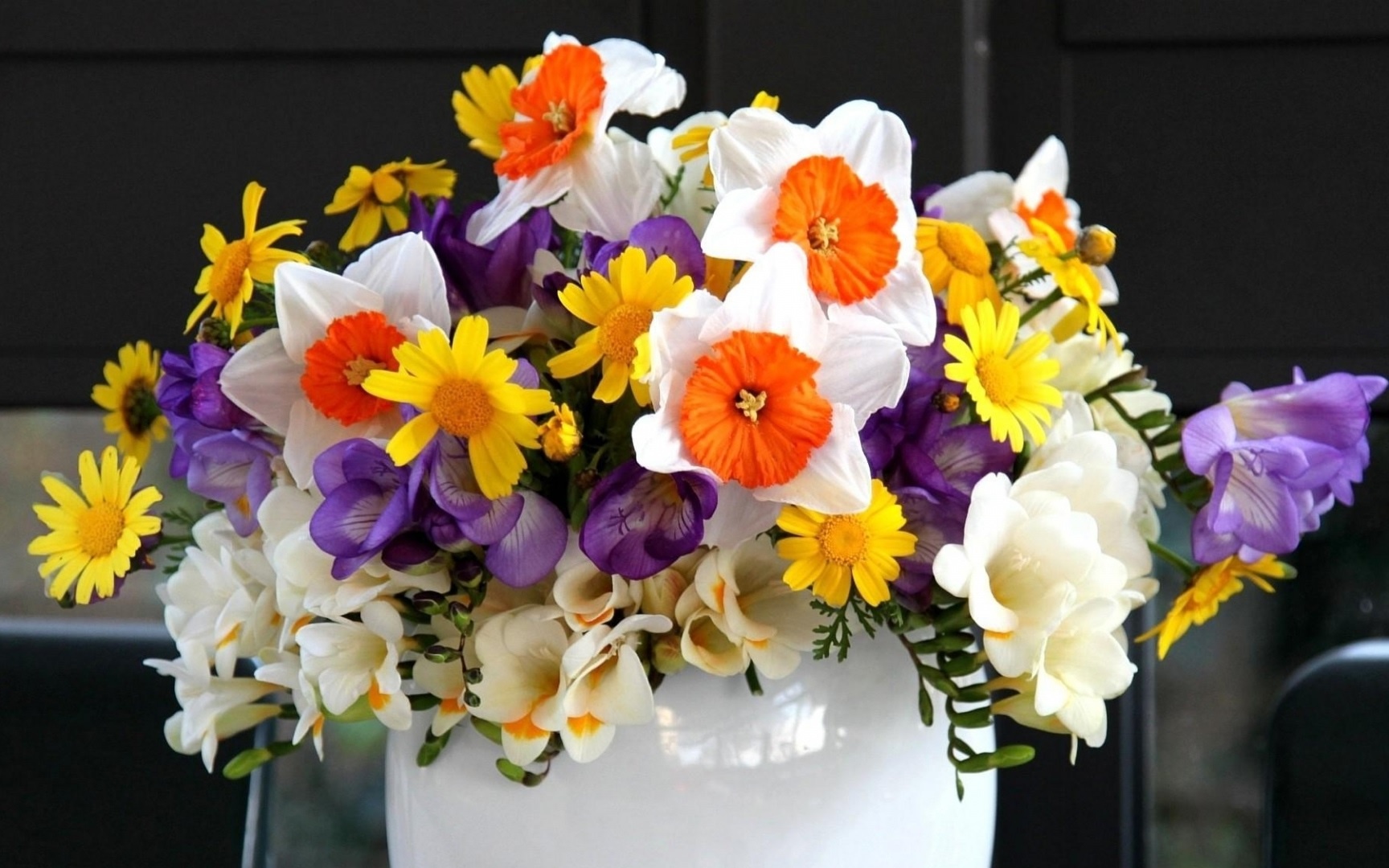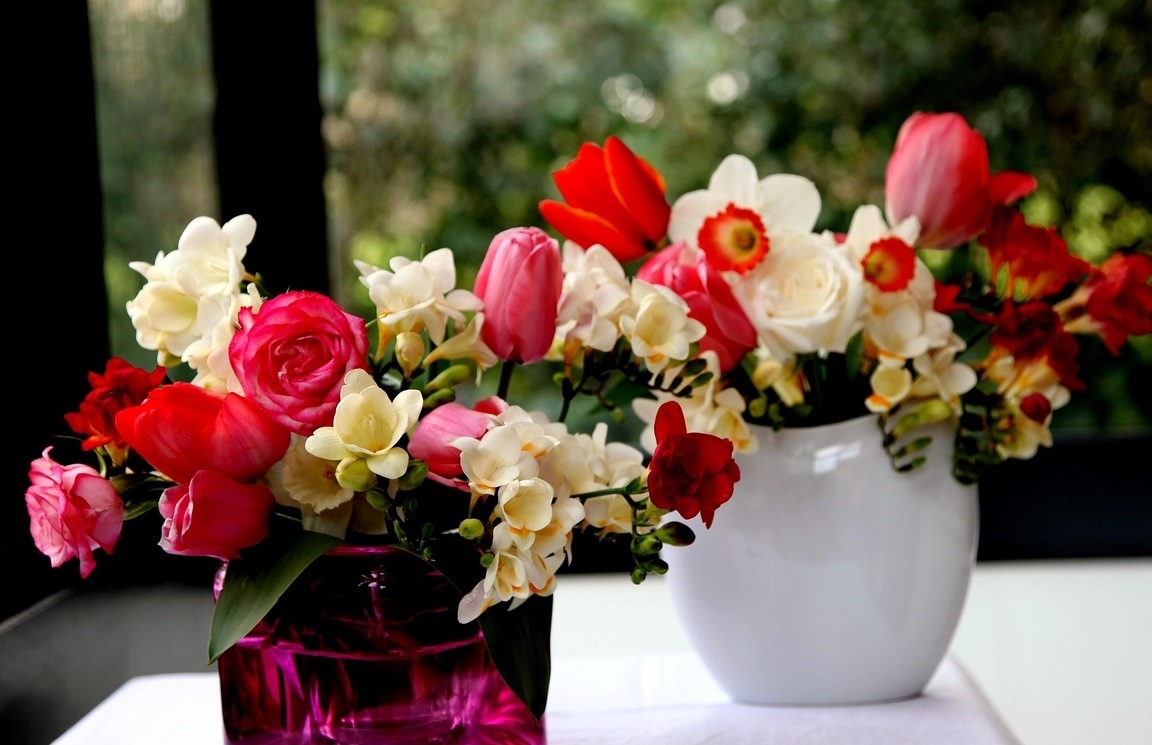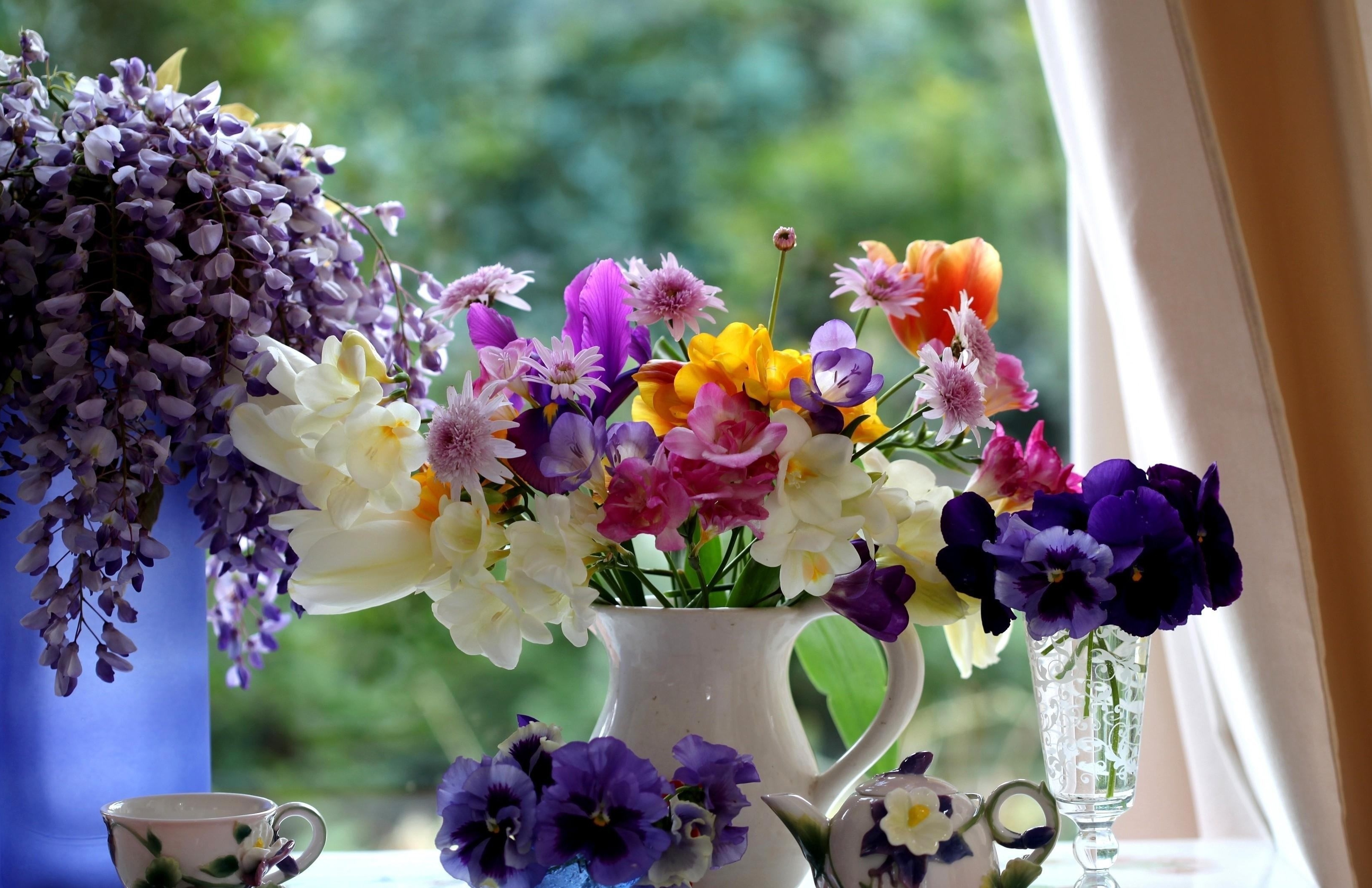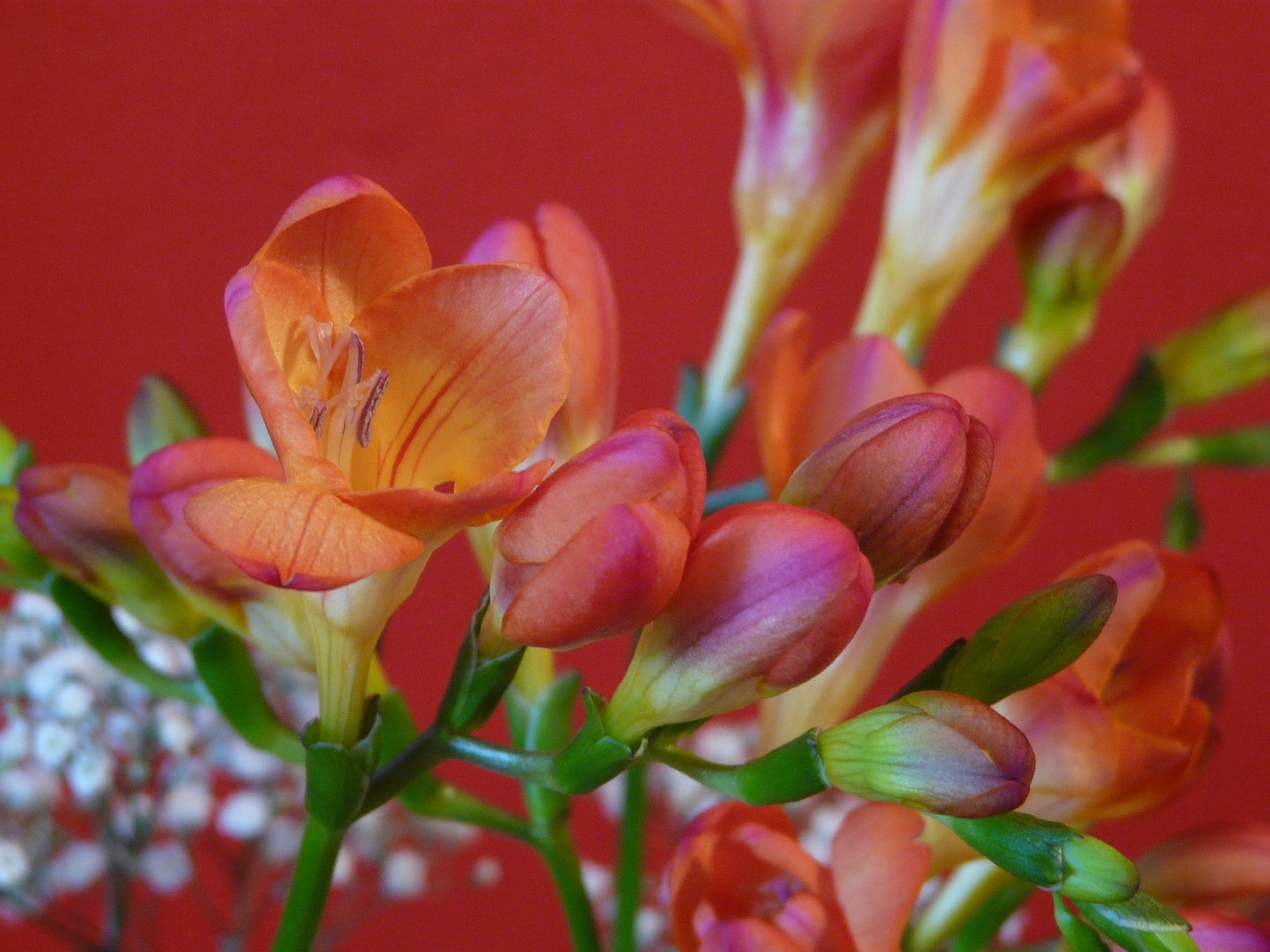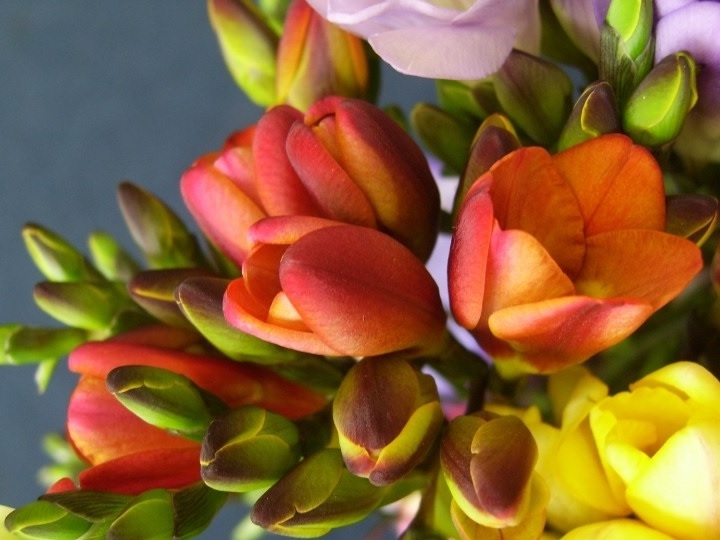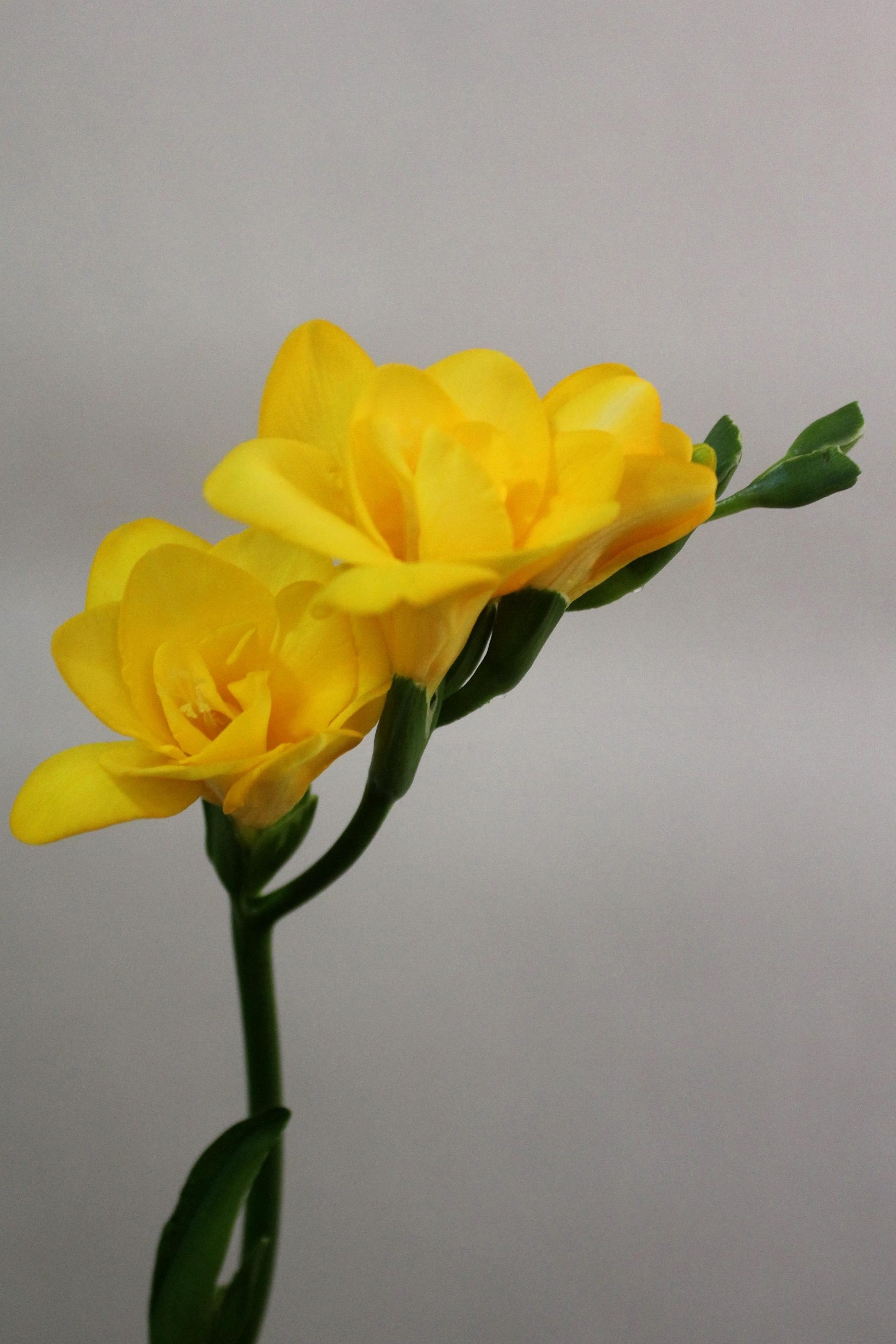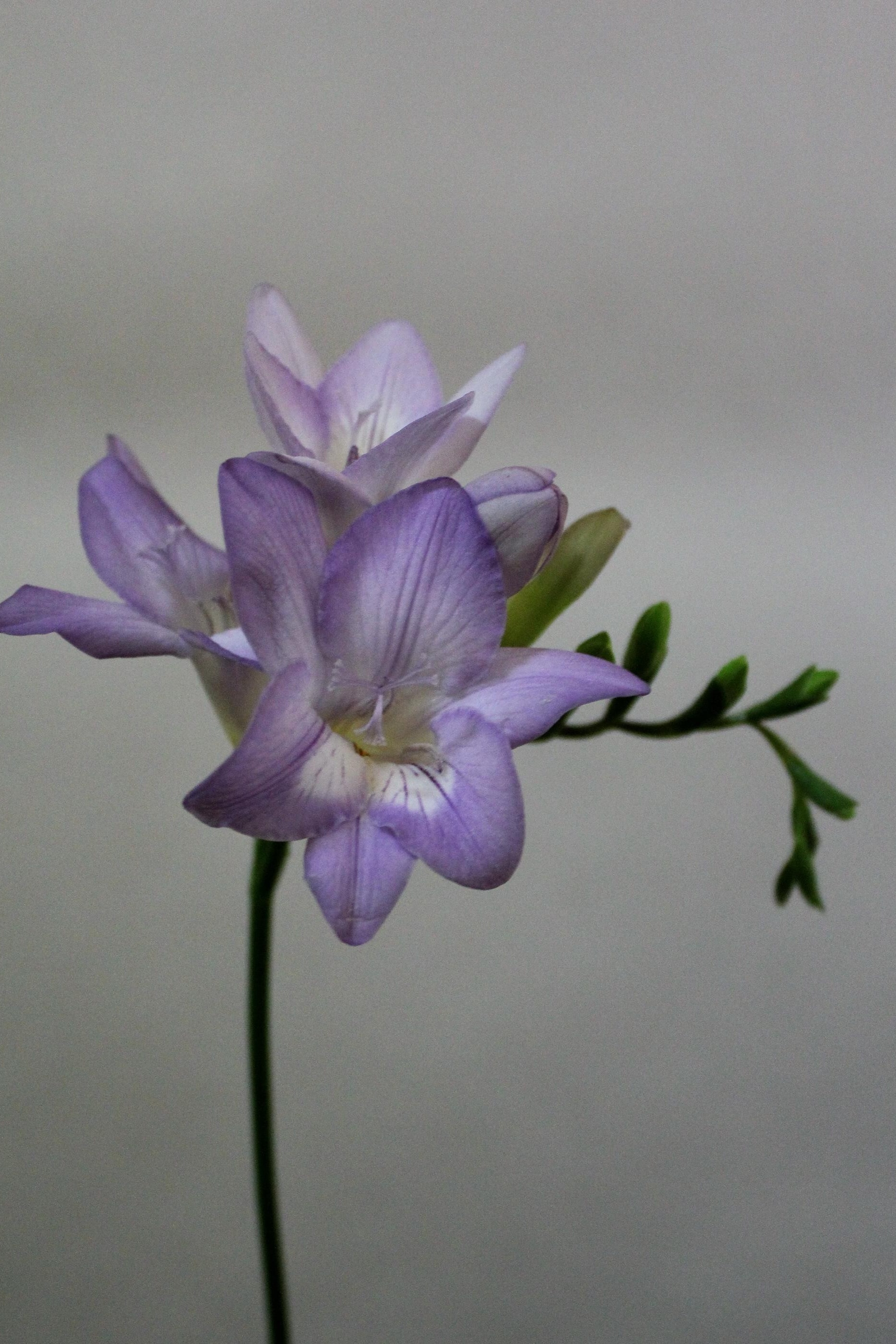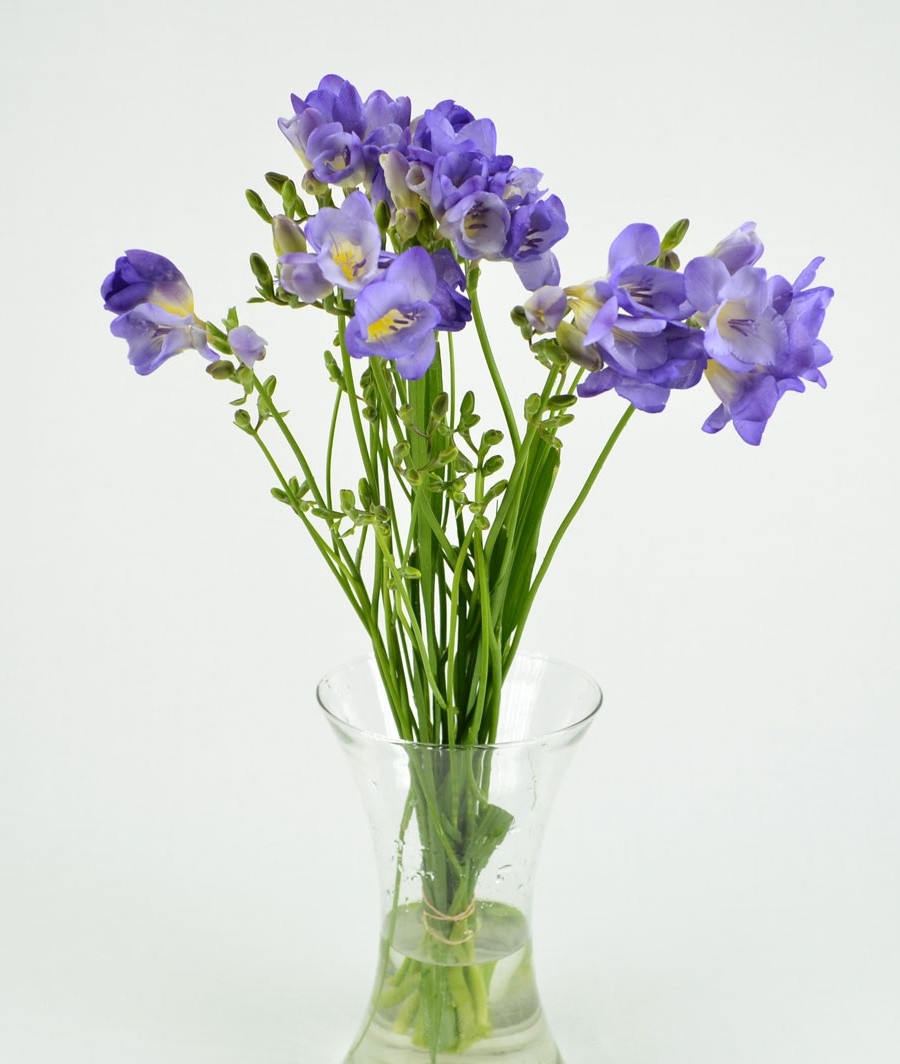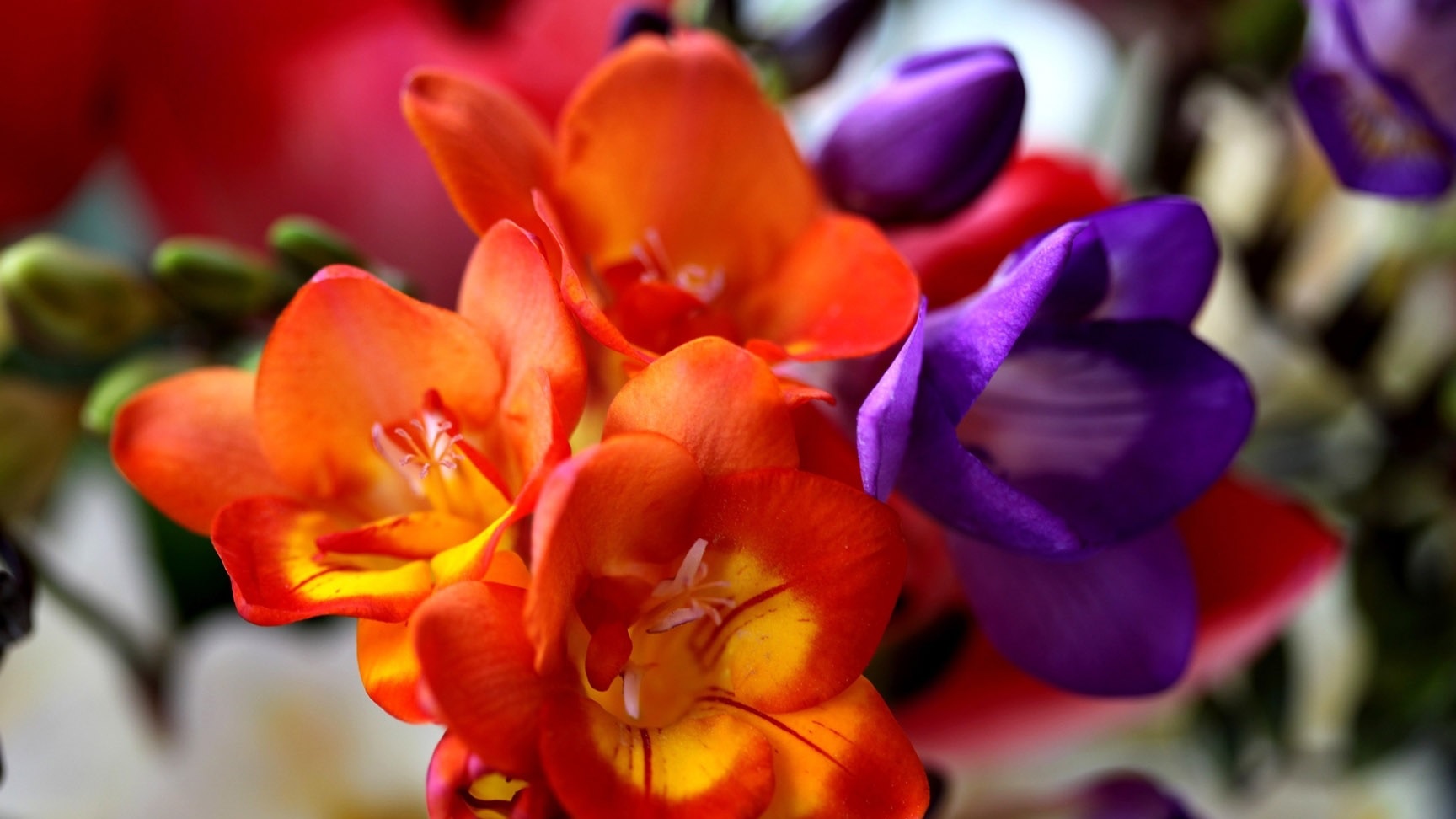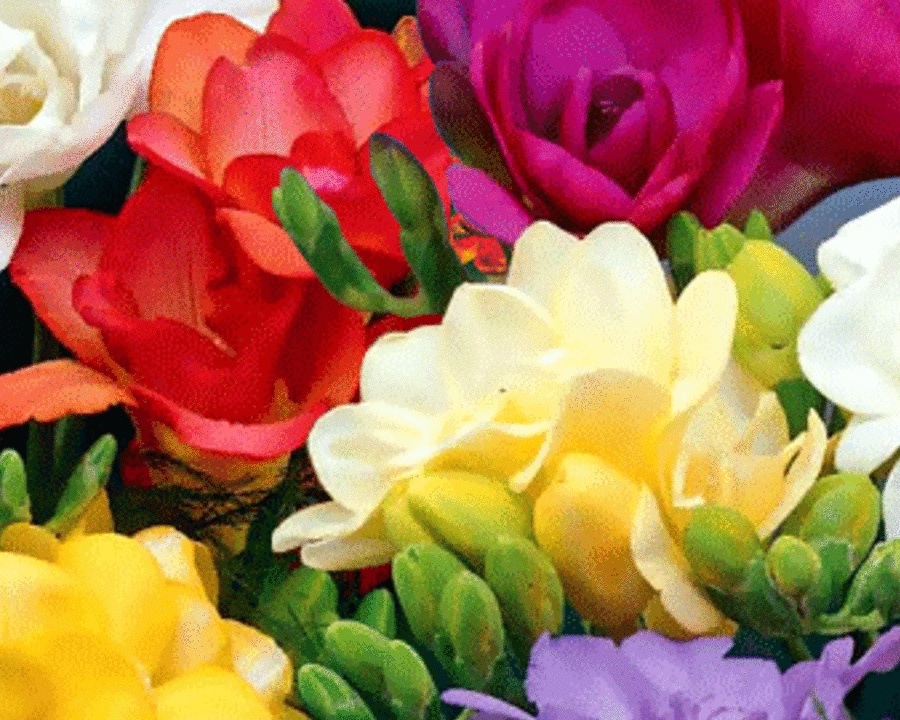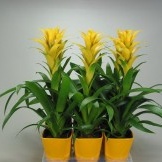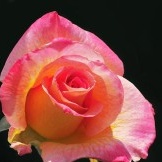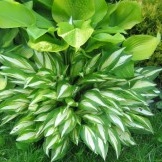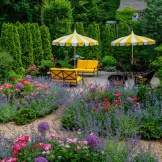Freesia - a vibrant aristocrat from South Africa
Another popular flowering plant among gardeners was freesia. It refers to representatives of grassy species. Such a perennial plant will allow you to easily give the site or a small flowerbed a stunning look.
Freesia for decorating the site
The plant belongs to the corms of the iris family. This flower was introduced from South Africa, which affects the conditions that are required for healthy flower growth.
Small flowers exude a smell reminiscent of the scent of lilies of the valley. That is why freesia got its second name - Cape lily of the valley.
The range of shades of plant flowers is wide:
- white;
- blue;
- yellow;
- red and others.
Often you can find varieties where, against the background of one color, there are interspersed with other shades.
The plant can reach a height of up to 100 cm. Its flowers are hardly placed on the peduncle. All this is framed by long leaves of a belt type. Typically, in a healthy plant, these leaves have a bright green color.
Due to the abundance of seedlings, magnificent freesias can be found in gardens, kitchen gardens, flowerbeds and personal plots.
In the 19th century in France, these aristocratic flowers were grown at court. The chambers of highly esteemed persons were decorated with fragrant bouquets.
Graceful petals similar to porcelain give a specific, sophisticated look to freesia. Such a flower gives the compositions a special tenderness. Beautiful flowers are associated with youth and freshness.
Previously, heat-loving freesia was grown only in greenhouses and used for cutting. Modern varieties already tolerate cold and feel great in open ground. Among the varieties of freesia, only three species are suitable for cultivation in the Russian climate.
Varieties of freesia
The varieties that are suitable for growing on the site include:
- Freesia Armstrong;
- broken freesia;
- hybrid freesia.
The first variety can grow up to 70 cm in height. Usually on the peduncle of this variety you can see flowers in red hues. Inflorescences resemble panicles, in which there are from 3 to 5 flowers. The stems of this variety are branched, large leaves of oblong shape grow on them.
Leaves grow straight from the rhizome. This variety blooms from May to June. One of the most beautiful varieties of this species can be considered the Cardinal. This name was given to the flower thanks to the bright red colors.
Broken freesia does not exceed 40 cm in height. Its stems are distinguished by a particularly elegant structure. On them you can see the inflorescences collected in the brush, with flowers in yellow and orange.
This variety begins to bloom earlier than the others in April. The varieties of this variety include Odorata. Its flowers have a bright yellow color and a pleasant smell, which is felt immediately, as soon as the flowering period begins.
Hybrid freesia shows a combination of all the best qualities of other varieties. The bush may rise a meter from the ground. Inflorescences of this variety are especially lush and bright. The flowers on such bushes are large, which is not characteristic of the plant.
In inflorescences usually gather up to 10 flowers. Thanks to this feature, during the flowering period, freesia hybrid looks luxurious. This variety can bloom in flowers of different colors, which provides it with a luxurious look.
To provide an unsurpassed effect, you can plant several bushes of different colors nearby. The result will be bright bouquets that enliven the landscape design.
Features of landing freesia on the site
Since the flowering of freesia depends on the correct temperature regime, it is necessary to correctly choose the place and time of planting. Before planting, it is necessary to prepare: the tubers are placed in a ventilated bag and arranged in a warm place under a container of water.
After a certain time, root buds will appear on the tuber.This means that a flower stalk has already arisen inside. Right before planting, the temperature of the root content should be reduced to 12 grams.
It will also be useful to disinfect with a fungal preparation. You can also spray planting material with pest and growth stimulants. This will speed up the appearance of roots. In extreme cases, potassium permanganate will be enough for processing.
The soil at the landing site of freesia should be well-drained and nutritious. These flowers are useful for top dressing from overripe humus. You can add a substrate of mineral fertilizer to it.
The pH of such soil should be neutral. To achieve this, dolomite flour can be added to the ground.
The best time for planting freesia is considered mid-April. When the soil overheats, the inflorescences in it dry out and stop growing. Therefore, it is important not to miss the time when the temperature of the topsoil has not risen above 15 grams.
Freesia feels best in shaded areas of the garden. It will be useful to mulch the earth under the plant, this will help maintain the moisture necessary for the flowers. The first fresh sprouts can be noticed after 2 weeks.
The most effective freesia care
Typically, the flowering period of this plant reaches one and a half months. If, after cutting flowers, pruning of the plant itself is carried out, then the buds remaining on the secondary stems will still bloom, which will slightly increase the overall flowering period.
Freesia requires moderate but frequent watering. The stems with buds need to be maintained, as they are very thin and may not support the weight of the flowers. To do this, between the plants you can drive in pegs and pull the rope.
In order to protect the plant from the appearance of spider mites, aphids and other parasites, it is necessary to process freesia with a soap solution once a season. From rot, the flower can be saved with the help of foundationazole and a solution of manganese.
Weeding is also important for the healthy growth of freesia. Faded buds are best removed because they damage the appearance of the plant. In mid-October, freesia tubers need to be dug up. In this case, the part that was on the surface of the earth is cut off. The peeled and dried roots are sorted and stored for storage until the next season.
Caring for freesia has some difficulties and features. But you just have to make some efforts and the garden will flourish with lush colors and be filled with the magical aroma of aristocratic flowers.

